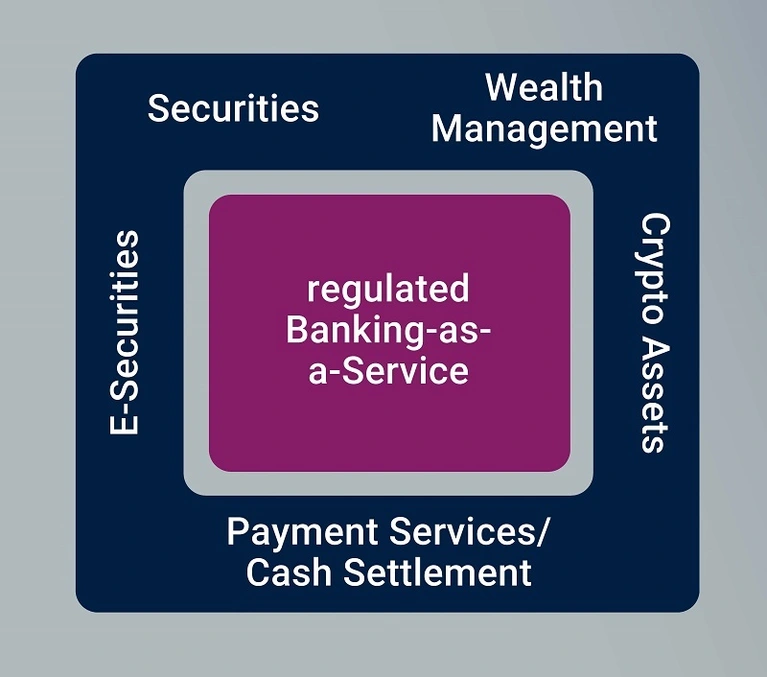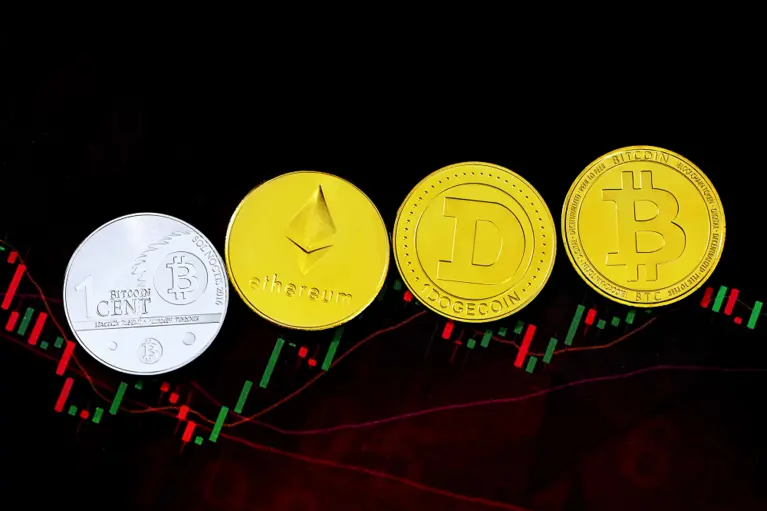As expected, the US Securities and Exchange Commission (SEC) has approved the first 12 Bitcoin ETFs. Investors have been speculating on this since the fall at the latest. This caused the volume of crypto trading to rise sharply in November. "Investors got into position early," says Hartmut Giesen, crypto expert at Hamburg-based Sutor Bank. The actual approval now hardly caused any price movements. But in the long term, Bitcoin, which started out as "anti-regulation money", can benefit greatly from the regulation that has now been found.
Comprehensive regulation is also the main argument used by the US Securities and Exchange Commission (SEC) to approve the first twelve ETFs on Bitcoin. "Despite the positive decision, SEC Chairman Gary Gensler has made it clear that he still considers Bitcoin to be a highly speculative instrument, most crypto assets to be illegal securities and the existing crypto exchanges to be largely non-compliant with the law," says Giesen. "Nevertheless, ETFs should ensure minimum standards of investor protection." Both ETF issuers and the exchanges on which they are listed must adhere to strict regulatory requirements for the securities business.
High trading volumes at Sutor Bank already in December
In this respect, the SEC is regulating the crypto sector, which it dislikes, virtually through the back door. "The trading houses are going along with this because they expect a lot from the ETFs," says Giesen. Even if yesterday's admission did not lead to a new price firework: After all, the Bitcoin price has already gained around 60 percent since the first rumors about the SEC move in the fall. The strong demand was also reflected in the trading volumes: "At Sutor Bank, December 2023 was the month with the highest trading volume since March 2022, despite the holidays. November had also already set 12-month records," says Giesen.
Many investors are now hoping for further strong price increases. "The assumption is that the Bitcoin price will rise due to the increased demand from new Bitcoiners who are investing in cryptocurrencies for the first time, either directly or indirectly, as a result of the ETF approval," says Giesen. These are two groups: Private investors who have always wanted to invest in Bitcoin, but for whom the crypto world was too complicated. Then there are institutional investors who were not allowed to invest directly in crypto assets or in the previous crypto-based financial instruments. "Both now have access to a reliably regulated product with an established structure that they can buy on established exchanges and keep in their existing custody accounts." In addition, despite Gary Gensler's restrictive words, the ETF approvals give the entire industry the "regulatory accolade" that makes the scandals of recent years a thing of the past.
Further developments will determine the formation of a new asset class
"But even if the infrastructure and regulation are now ready for the mainstream breakthrough, it is not yet certain whether it will actually happen," says Giesen. That also depends on developments. "If, as in the past, a price bubble forms and then bursts abruptly, crypto assets will remain a gambling instrument for the few. If a predictable, diversifiable asset class emerges that can be used to hedge risks and exploit opportunities for returns, Bitcoin will also find its way into more conservative standard portfolios," explains Giesen.
The new ETFs are spot ETFs that directly track the price of Bitcoin. They are physically backed by Bitcoin, which sets them apart from similar instruments such as exchange-traded products (ETPs), which have existed in the past. "For private investors, ETPs were sometimes too exotic and also quite expensive," says Giesen. "Professional investors are reliant on physically deposited funds." In this respect, there is great potential for demand. The ETFs can already be traded in the USA with immediate effect. The fact that twelve ETFs have been approved is intended to ensure equal opportunities and choice for investors. "The state approval confirms a paradox that has been observed for some time," says Giesen. "Bitcoin, which was created 15 years ago as anti-regulatory money, is benefiting from increasing regulation, both in terms of its entry into the mainstream and its price performance."
![[Translate to English:] Hartmut Giesen](/fileadmin/_processed_/c/c/csm_Hartmut-Giesen_04a65810bb.webp)
![[Translate to English:] Hartmut Giesen](/fileadmin/_processed_/c/c/csm_Hartmut-Giesen_ee02a3a918.webp)



